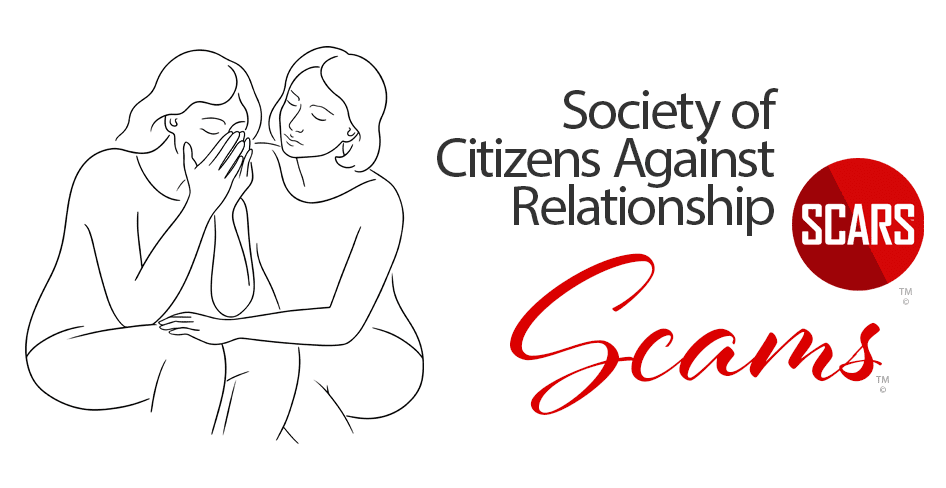A Brief History Of Scams
Since the days of AOL in the early 1990s there has been a growing threat of online fraud. It began with emails and posts in chat rooms, expanding to online dating, and exploding into social media. Today there are at least 100,000 individual fraudsters operating, and countless more individuals connected with online fraud. Whole institutions have come about to support their needs, whole national governments that turn a blind eye on their crimes. Online fraud fuels international terrorist organizations such as Al Qaeda and ISIS and has for more than a decade. Yet, while the scope of these crimes has grown in number and complexity, our law enforcement has become less effective and more disinterested in responding.
Over the last 10 years a large number of homegrown amateur anti-scam groups have emerged, each with their perspective and orientation. Almost all of them focused on a desire to expose and catalog every single fake persona that appears in websites, apps, social media, and elsewhere. Some have provided worthwhile avoidance education and a sense of community, yet in the final analysis, have all failed.
This is the sobering truth in all anti-scam activities. They have all failed to stop the progression of online fraud or to intercept in any meaningful way the public to educate them about frauds before they became victims. In reality, most education is oriented towards helping victims understand after the fact. This indeed serves the purpose of helping victims not become repeat victims, but ineffective in stopping the spread. Online fraud continues to expand in double-digit percentages yearly, and the expectation for 2016 is over one million new victims. In addition, many of these amateur groups cross legal lines by offering counseling without a license and increasing victims’ trauma through their ignorance.
International Crime
The number one international crime is of course drugs. Here are the top 3 international crimes based upon personal individual impact:
- All Forms of Cybercrime – Over $1 Trillion Annually 2018 – Massive Global Impact
- Drugs – Over $400 Billion Annually – Massive Personal Impact
- Human Trafficking – Over $40 Billion Annually – Massive Personal Impact
- Online Fraud – Over $30 Billion Annually – Massive Personal Impact
Additionally, terrorism is right up there in the top three. Interestingly the impact of online fraud is a component in supporting international terrorism and as a tool to target individuals for human trafficking, so online fraud’s impact is disproportionally making it possibly the #2 global crime problem.
The result of all of this is that the explosion of online fraud is truly out of control and no other group or organization is having an impact beyond their small groups. This was the trigger for the creation of a new model for countering the challenges of online fraud.
The Challenge
Online crimes which cross borders are almost certainly more difficult to prevent than those which happen within national boundaries. This is one reason that these online crimes are harder to detect and to punish. It is a great challenge to clear drug dealing from our streets and we know how difficult it is to stop the flow of drugs from just limited regions, much less worldwide. With online fraud, it comes from a hundred nations via a vast number of mediums. Law enforcement is only good enough to counter a small portion of this flow.
When confronted with impossible and overwhelming challenges people have turned to cooperative organization and combining their skills to achieve change. This is what is needed to confront the endless growth of online fraud.
A New Institution
Like other crimes that result in horrific impact on victims, online fraud steals the heart and soul of its victims. Therefore the opportunity existed to follow the lead of other advocacy and victims support organizations that have had huge impact in their focus areas such as Mothers Against Drunk Driving – MADD® From their model, our founders (one of whom was also a founder of TigerDirect back in 1985) envisioned a single organization to bring together and support groups and organizations fighting to do the right thing into a consolidated body which will have the clout to advocate effectively for change, and create support functions to aid all victims and turn the tide against online fraudsters.
The Focus
The focus of the Society will be in several areas which we believe will profoundly benefit its members, victims, and the larger public.
- Consolidate the voices of many into a single voice – this is happening as we speak, SCARS represents more than 25,000 right now.
- Work for the creation and implementation of universal standards and practices that provide effective and ethical anti-scam activities – this is happening now click here to learn more.
- Engage government, law enforcement, and victims globally in new methods to aggressively combat online fraud.
- Create the first worldwide Anti-Scam Data Reporting Network with industry partners for real-time exposure of fraudsters – this has been built, click here to learn more.
- Develop support and recovery solutions for traumatized victims based upon the best methods employed in the private and public sectors.
These are the principal goals of the Society and its Management.

